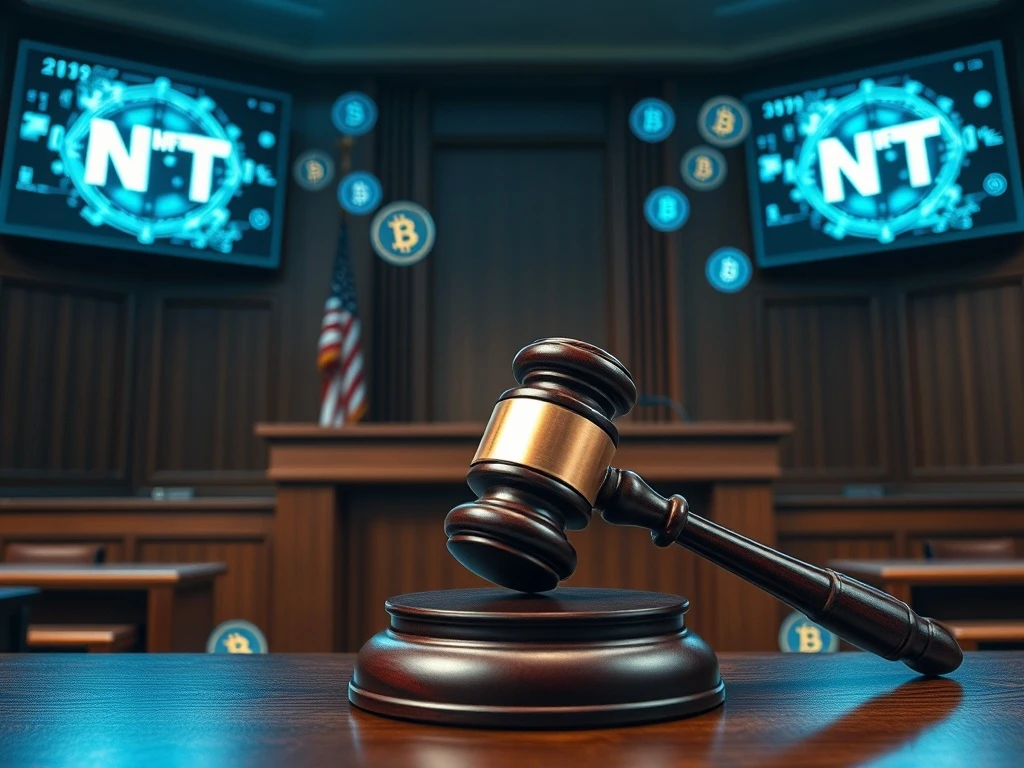A Texas magistrate judge has delivered a significant ruling in the high-profile CryptoZoo lawsuit involving YouTube star Logan Paul, recommending dismissal of the proposed class-action case while allowing plaintiffs another opportunity to strengthen their claims against the controversial NFT project.
Judge Griffin’s CryptoZoo Lawsuit Recommendation
Magistrate Judge Ronald Griffin advised an Austin federal court that plaintiffs failed to sufficiently connect Logan Paul to their financial losses from the CryptoZoo project. The 75-page report specifically recommended dismissing the commodity pool fraud claim, calling the legal reasoning behind it requiring “mental gymnastics.” However, Griffin suggested allowing amendments to 26 other claims in the ongoing CryptoZoo lawsuit.
Commodity Pool Fraud Claim Dismissed
Judge Griffin strongly rejected the argument that CryptoZoo NFTs constituted option contracts. Plaintiffs claimed the NFTs functioned as options because purchasers bought “eggs” that later hatched into animals with unknown value. The court found this logic unconvincing and legally unsupported. This particular aspect of the CryptoZoo lawsuit demonstrates the challenges of applying traditional financial regulations to novel NFT structures.
Evidence Issues in CryptoZoo Case
The ruling highlighted critical evidentiary shortcomings in the CryptoZoo lawsuit. Plaintiffs struggled to demonstrate that Paul directly benefited from the project’s collapse. The complaint contained fragmented facts and vague attributions to defendants according to the court’s assessment. This evidentiary gap represents a major hurdle for the class action group pursuing the CryptoZoo lawsuit.
Background of CryptoZoo Project
CryptoZoo launched as an NFT game where users could buy, hatch, and breed digital animals. Buyers sued in February 2023 alleging the project amounted to a “rug pull” with promised perks never materializing. Paul later accused his co-founders of deceiving him and contributed $2.3 million for buyer refunds in January 2024. The complex history adds layers to the ongoing CryptoZoo lawsuit proceedings.
Legal Implications for NFT Projects
This CryptoZoo lawsuit establishes important precedents for NFT regulation and creator liability. The court’s scrutiny of how traditional fraud laws apply to digital assets will influence future cases. Key considerations include:
- Creator responsibility for NFT project promises
- Legal standards for proving financial benefit from project failure
- Regulatory classification of novel digital asset structures
- Evidence requirements in cryptocurrency-related litigation
Next Steps in CryptoZoo Litigation
The class action group now has opportunity to amend their claims following the judge’s recommendations. A federal judge will make the final decision on whether to adopt Magistrate Griffin’s suggestions. The outcome could significantly impact how influencers and creators approach NFT projects moving forward. This CryptoZoo lawsuit continues to develop as both sides prepare their next legal moves.
FAQs About the CryptoZoo Lawsuit
What is the current status of the CryptoZoo lawsuit?
The Texas magistrate judge recommended dismissing the commodity pool fraud claim while allowing plaintiffs to amend 26 other claims against Logan Paul.
Why did the judge criticize the commodity pool fraud claim?
Judge Griffin found the legal reasoning behind classifying NFTs as option contracts required “mental gymnastics” and lacked supporting case law.
What evidence problems did the lawsuit face?
Plaintiffs struggled to show direct financial benefit to Logan Paul from CryptoZoo’s collapse and presented fragmented factual allegations.
Has Logan Paul offered any compensation to buyers?
Yes, Paul allocated $2.3 million for refunds in January 2024, offering 0.1 ETH to original buyers who agreed not to sue.
What does this mean for other NFT creators?
The case establishes important precedents regarding creator liability and how traditional fraud laws apply to digital asset projects.
Can plaintiffs still pursue their case after this ruling?
Yes, the judge recommended allowing amendments to most claims, giving plaintiffs another opportunity to strengthen their arguments.








